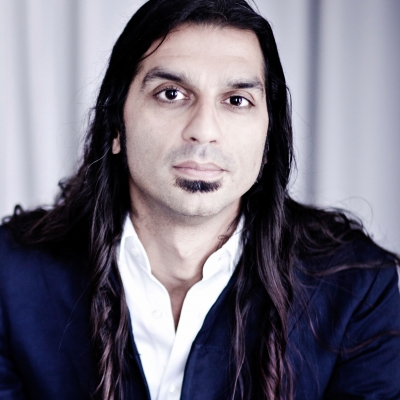Sanjit Manku founded Parisian design studio Jouin Manku with Patrick Jouin in 2006. Fusing architecture, interior design and product design in a joyful and fluid exchange, the studio designs and orchestrates every element of the spaces that it creates, crafting immersive and remarkable interiors for clients around the world.
Born in Nairobi, Kenya in 1971, Manku spent his childhood in Ontario, Canada. He studied architecture at Carleton University and following his degree established his own studio before joining leading Canadian design firm Yabu Pushelberg where he remained for five years. A year-long sabbatical in Europe led Manku to meet product designer Patrick Jouin in Paris in 2001. Discovering a kindred and compelling design rapport, they began to collaborate almost immediately. Initially working together as part of Jouin’s studio, the duo founded Jouin Manku five years later. Since those early days, Jouin Manku has grown to become a studio of 40 designers with a rich portfolio of projects for clients across the world, ranging from a series of unique restaurants for the acclaimed chef Alain Ducasse to the transformation of one of Paris’s great train stations, Gare Montparnasse.
From his earliest experiments in architecture and design, Manku has constantly sought to push himself further and to innovate relentlessly, driven by an innate curiosity and the ambition to design spaces which offer new experiences and moments of joy to all who encounter them. His love of organic forms, the art of drawing and the possibilities of materials and making have found their most complete expression in his creative partnership with Patrick Jouin, a partnership in which distinctions between architect and product designer dissolve in the creative energy of dynamic improvisation.
Just as the guitars which he crafted to fund his architecture studies were instruments for others to express themselves, Sanjit Manku sees the spaces that he designs as gifts to their inhabitants, only truly realised when they come to life with movement and engagement, as settings for other people’s lives.




